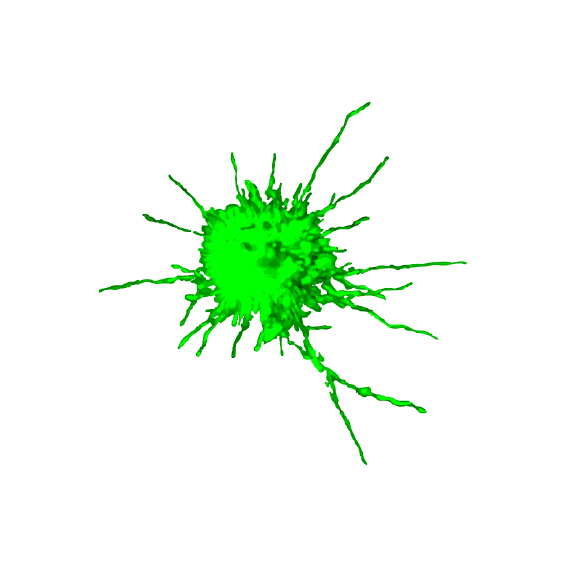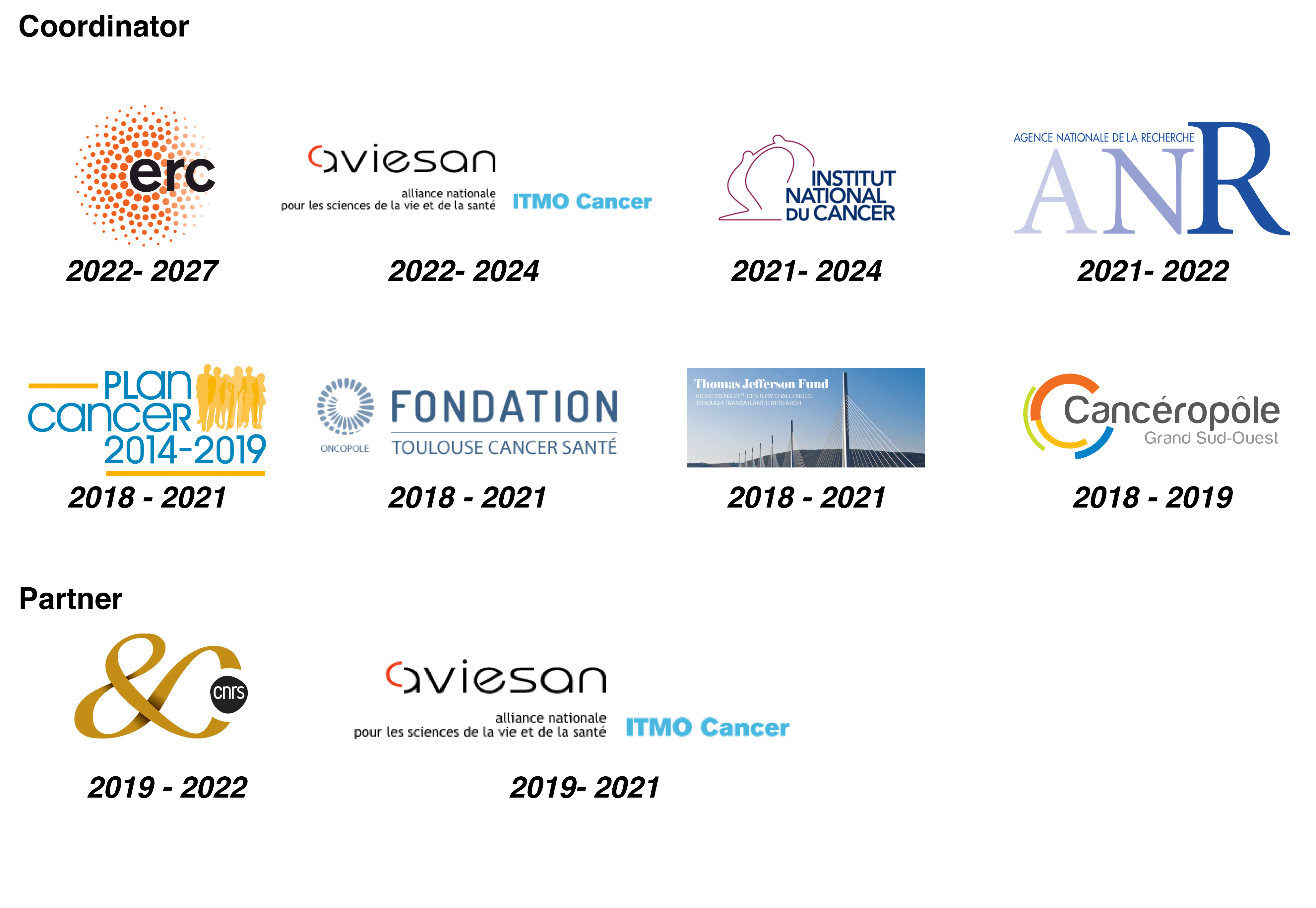Our overarching goal is to understand the impact of mechanical stress on the living, with a strong emphasis on cancer. To this end, our research is subdivided into two main subgoals: unraveling the universal impact of compressive stress on the living, and investigating the specificities of compressive stress on cancer. We indeed believe that solutions can come from the most unexpected places and that studying various organisms from bacteria to yeasts all the way to mammalian cells can help us decipher the impact of compressive stress.

Impact of compressive stress on cancer progression and treatment
Solid tumors are under mechanical pressure. While modifications of the stroma lead to an exogenous stromal-induced pressure, solid tumor growth in the elastically confining environment results in the emergence of an endogenous growth-induced pressure. The impact of mechanical pressure on cancer is still largely elusive and seems to depend on many parameters: While it sometimes limits tumor progression, it can also promote invasion and hinder therapy.
We study the impact of compressive stress on cancer progression and treatment, using state-of-the-art microfabrication techniques. Novel microphysiological systems permit in vitro studies of cell-matrix interactions, cell secretion, invasion, or drug resistance of pancreatic cancer cells under compressive stress.
Together with our colleague J. Guillermet-Guibert at CRCT, we additionally investigate in vivo the effect of compressive stress through imaging of the mechanical parameters defining a tumor and novel mice models to investigate controlled compression.
Impact of compressive stress on cancer progression and treatment

Is there a universal response to compressive stress?
Growth-induced compressive stress does not require cell adhesion to build-up, and as such could be experienced by any cells. Microbes, animal or plant cells can be under pressure, and their cross-study can unravel unforeseen effects. Using different cellular systems such as the fungi S. cerevisiae, S. pombe or C. albicans, the bacteria E. coli or N. meningitidis, cancer cell lines, or even the plant model A. thaliana, we address various questions on the impact of compressive stress on cell physiology.
To this end, we design various devices allowing dynamic control over the physico-chemical environment of a cell population. We work at different size scales, from the hundreds of nanometers of bacteria to the dozens of micrometers of plant cells, and apply different intensities of mechanical stresses, from the kPa range of mammalian cells to the MPa of yeasts. These conditions require specific microfabrication.
Among our current research directions, we study how compression affects proliferation, genomic stability, metabolic plasticity or cell transdifferentiation. Our goal is to disentangle the organism-dependent response from potential universal behaviors: We believe that while some responses may depend on the specifics, others may be shared through common biophysical regulations across different species.
Is there a universal response to compressive stress?
Past and present funding

